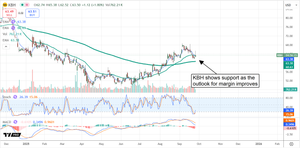Pharma and Device Payments linked to Prescription Behaviors, Utilization, and Quality Concerns Across States
Conflixis, a leading conflicts of interest risk management technology provider, today released its comprehensive 2025 Open Payments Report, uncovering alarming patterns in financial relationships between healthcare providers and pharmaceutical and medical device industries that threaten patient safety, healthcare quality, and system integrity.
The report arrives at a critical moment as the regulatory landscape transforms under intensified enforcement efforts, including the establishment of the False Claims Act Working Group and new leadership at key agencies signaling heightened scrutiny of industry-provider relationships.
"Our 2025 analysis reveals that financial relationships between industry and providers are not merely educational interactions—they're sustained arrangements that fundamentally shape clinical decision-making," said Aaron Narva, CEO of Conflixis. "The correlation between payments and prescribing behaviors has grown stronger, not weaker, despite years of transparency efforts. This erosion of clinical independence is undermining patient trust in healthcare at a time when that trust is desperately needed."
Key Findings Reveal Systemic Healthcare Risks
Strong Correlation Between Payments and Prescribing: Providers receiving payments from drug manufacturers prescribed vastly more of associated medications compared to providers who received no payments. This disparity has steadily expanded over five years, with the majority of financial relationships persisting year after year, indicating sustained influence rather than one-time educational interactions.
State-Level Quality Concerns: States with higher proportions of prescriptions potentially influenced by recent industry payments generally ranked lower on national healthcare quality indices. The analysis found that prescription activity in states with lower quality healthcare may be more susceptible to industry influence, while states with restrictive payment policies consistently achieved higher quality outcomes.
Third-Party Payment Patterns: Payments made to providers through third-party entities increased substantially, reaching 23,036 transactions totaling $415 million in 2024. These complex payment structures can obscure transparency, complicating conflict-of-interest management and heightening compliance risks for healthcare organizations.
Persistent Enforcement-Related Patterns: High-cost group meals rose by over 20% to more than 4,800 transactions, while payments classified as "Compensation for Services Other than Consulting" reached $700 million, with repeat payments making up $400 million of those transactions in 2024. These interaction types are frequently mentioned in regulatory enforcement actions.
Implications for Healthcare Stakeholders
The analysis reveals significant legal, reputational, financial, and quality-of-care risks throughout the healthcare ecosystem. Beyond regulatory and financial concerns, these patterns contribute to a broader erosion of public trust in healthcare—a crisis that threatens the foundation of our system.
"We're not suggesting all industry-provider relationships are problematic—many drive crucial innovation and education. The goal is to identify and address the relationships that lead to risk and higher costs, while preserving those that genuinely benefit patients."
Providers and manufacturers face increased legal scrutiny under statutes such as the Anti-Kickback Statute and the False Claims Act, while elevated prescribing rates linked to payments drive substantial cost increases for payers and patients.
The report demonstrates that limiting industry payments does not negatively impact care quality, further emphasizing the potential benefits of robust conflict-of-interest management. States with restrictive industry payment policies showed superior healthcare quality metrics while maintaining low rates of payment-influenced prescriptions, suggesting that healthcare systems can thrive when inappropriate financial influence is minimized.
About the Analysis
Conflixis analyzed prescription data across multiple medications, integrating Medicare Part D claims data and commercially sourced claims for the years 2020 through 2024. The analysis linked Open Payments data to healthcare claims, providing unprecedented insights into how financial relationships directly influence prescribing patterns and healthcare delivery.
About Conflixis
Conflixis is a conflict of interest risk management software company that leverages artificial intelligence and advanced data analytics to help healthcare organizations identify, manage, and mitigate risks arising from conflicts of interest. Drawing on decades of experience in anti-corruption, anti-money laundering, and fraud prevention, Conflixis provides a sophisticated AI-enabled platform that offers real-time, customized analysis of both internal data sets and public records. The company's technology enables healthcare organizations to move beyond traditional "file and forget" compliance systems to proactive risk management and significantly reduce administrative burden for providers and other staff.
The complete 2025 Open Payments Report is available at https://www.conflixis.com/theopreport.
View source version on businesswire.com: https://www.businesswire.com/news/home/20250925179952/en/
Contacts
For more information about the 2025 Open Payments Report or Conflixis' technology solutions, please contact:
Jessica Francis
info@conflixis.com





